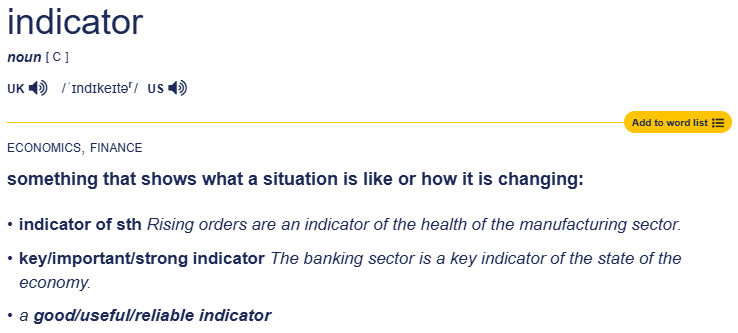A 'canary in a coal mine' or simply 'canary' is any kind of simple measure that usually shows the presence of some bad thing. Similarly a litmus test is colloquially used as to mean 'a test of any given situation existing'.
Both of these idioms are typically used for a binary determination - the thing either existing or not.
I'm looking for a similar idiom that points to a trend.
For example:
The Acme Fashion awards are a [something], hinting at what the popular fashion items will be this year.
Weather vane seems to have the right imagery - but I can't see that it's been used like this.

